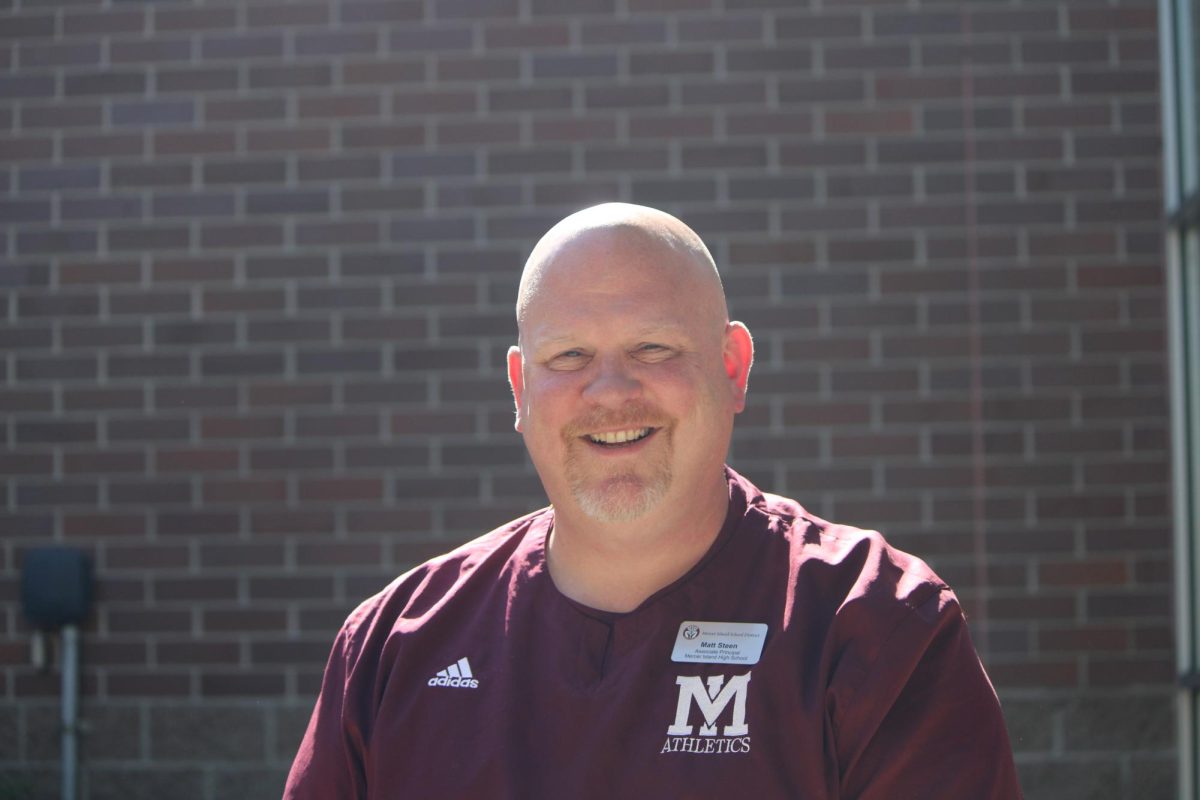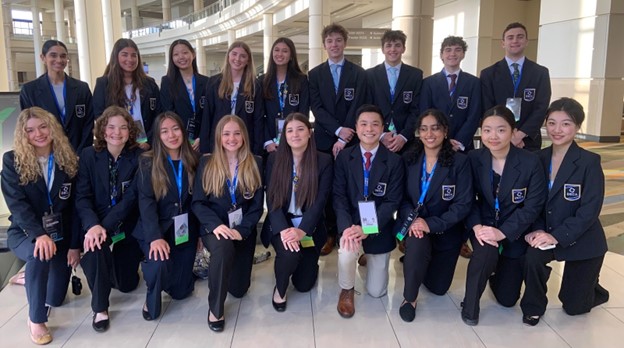On Tuesday, Oct. 1, Democratic Gov. Tim Walz and Republican Sen. J.D. Vance engaged in a lively, informative and surprisingly civilized vice presidential debate.
Both participants agreed to NBC News’ terms for the discussion. Each question allowed two minutes of response time per candidate, followed by two minutes of rebuttal each as well as an additional minute if the moderator saw fit. In addition, the candidates did not hear the questions in advance, were expected to fact-check each other and their microphones were able to be muted.
Tuesday night’s debate was a refreshing and hopeful discussion addressing the many concerns voters are facing this upcoming November. Both candidates debated in such an agreeable and even-tempered manner that they resorted to attacking each other’s running mates when disagreeing with one another rather than maintaining the directly spiteful mood of the recent presidential debate.
The debate started with moderator Margaret Brennan inquiring about U.S. involvement regarding Israel and Iran. Walz and Vance both expressed their sympathy for Israelis, specifically mentioning the massacre of Oct. 7 last year. The candidates were intentional about emphasizing their grievances for the people affected by each topic discussed as part of their attempts to gain likability where it might be missing from their running-mate. Supplementary to addressing their alliance with Israel, Walz assumed Donald Trump’s responsibility for Iran’s historically piqued proximity to a nuclear weapon after he rejected a deal with the country that would protect the U.S., and claimed the former president is a widely regarded danger to the nation.
“His chief of staff, John Kelly, said that he was the most flawed human being he’d ever met,” Walz said. “And both of his Secretaries of Defense and his national security advisors said he should be nowhere near the White House. Now, the person closest to them, to Donald Trump, said he’s unfit for the highest office. That was Senator Vance.”
When asked about Trump’s current self-contradicting statement that a deal needs to be made, Vance simply suggested that he had changed his mind, redirecting the conversation to target Kamala Harris as the real danger to our country.
“When did Iran and Hamas and their proxies attack Israel?” Vance asked. “It was during the administration of Kamala Harris. So Governor Walz can criticize Donald Trump’s tweets, but effective, smart diplomacy and peace through strength is how you bring stability back to a very broken world.”
He carried this accusatorial tone into the next topic of climate change.
Upon being asked to address Trump calling climate change a hoax, Vance instead called into question the belief that it is a result of carbon emissions and criticized Harris’ approach to solving the issue.
“What have [her] policies actually led to?” Vance said. “More energy production in China, more manufacturing overseas, more doing business in some of the dirtiest parts of the world.”
Vance challenged Harris’ belief in climate change due to carbon emissions, explaining that if she truly thought it was not a hoax, she would prioritize American-produced energy and manufacturing.
In response, Walz emphasized the impacts the Biden-Harris administration has already had. He highlighted that natural gas and oil production is at an all-time high, more clean energy is being harnessed and that continuing further is necessary with the dangers and reality of climate change.
“Reducing our impact is absolutely critical,” Walz said. “But this is not a false choice. You can do that at the same time you’re creating the jobs that we’re seeing all across the country. That’s exactly what this administration has done. We are seeing us becoming an energy superpower for the future, not just the current.”
The discussion then shifted to one of the top issues for voters: immigration–specifically the plight at the border between the U.S. and Mexico. Brennan requested Vance’s explanation about how Trump will carry out the extreme deportation plan, including specifics regarding separating first-generation American children from undocumented parents.
As an initial priority, Vance wants to “stop the bleeding.” He blames the fentanyl crisis on Harris’ already initiated agenda to reverse Trump’s policies for border control, including her steps taken to delay deportations, pushing for the decriminalization of undocumented immigration and raising rates of asylum fraud.
“I had a mother who struggled with opioid addiction and has gotten clean,” Vance said. “I don’t want people who are struggling with addiction to be deprived of their second chance because Kamala Harris let in fentanyl into our communities at record levels.”
To implement deportation, Vance plans to start with criminals and eliminate undercuts of minimum wage. Concerning families, he is focused on the children that have been lost from the system.
“Some of them have been sex trafficked, some of them hopefully are at homes with their families, some of them have been used as drug trafficking mules,” Vance said. “The real family separation policy in this country is, unfortunately, Kamala Harris’s wide open southern border.”
Walz shut down the inaccurate mention of drug mules, and proceeded to highlight the previous success Harris’ policies have resulted in, including human trafficking gangs and drug involvement being persecuted as well as a decrease in opioid-related death rates. However, his main argument was for critical action from Congress and getting a Chamber of Commerce bill passed.
“Democrats and Republicans worked on this piece of legislation,” Walz said. “The Border Patrol said, this is what we need in here. These are the experts. And the Chamber of Commerce in the Wall Street Journal said, ‘pass this thing.’”
While Harris helped the bill along and it came to a point of almost passing, Trump discouraged votes for it.
“It gives him a campaign issue,” Walz said. “It gives him, what would Donald Trump talk about if we actually did some of these things? And they need to be done by the legislature. You can’t just do this through the executive branch.”
Waltz closed it off with a statement saying that he believes “Senator Vance wants to solve this. But by standing with Donald Trump and not working together to find a solution, it becomes a talking point. And when it becomes a talking point like this, we dehumanize and villainize other human beings.”
As the debate moved onto economic policies, the candidates discussed the outline and reliability of each plan. As he was part of the many Americans unable to afford the cost of living growing up, Vance recalls Trump’s success in comparison to Harris with reducing gas prices, groceries, etc. as vital to making the American Dream achievable again. Walz credited Trump with keeping his economic promises, but pointed out the financial collapse under Trump’s leadership during Covid, as well as a failure to trust the experts, instead excusing it as economic “common sense.” On the other hand, Harris’ middle-class-appealing goals within healthcare and housing philosophically polarize their economic values. Vance’s thoughts on her intentions for the economy?
“If Kamala Harris has such great plans for how to address middle-class problems, then she ought to do them now,” he said, “not when asking for a promotion, but in the job the American people gave her three and a half years ago.”
The following discussion dove into the personal qualifications of the vice presidential candidates, but was generally directed toward conversations around credibility or, in Vance’s case, alliance with his running-mate. He spent most of his speaking time explaining his turnaround from bashing to running alongside Trump, while Walz defended himself about his past, attempting to clarify miscommunications.
Walz also was asked to defend his stance on their next topic: reproductive rights. He expressed his passionate contempt for Trump’s overturning Roe v. Wade and told the powerful stories of Amanda Zaworski, Hadley Duvall and Amber Thurmond and the toll losing their rights took on their lives. He also stated his fears surrounding Project 2025, and that this was a matter of healthcare and basic human rights.
“The fact of the matter is, how can we as a nation say that your life and your rights as basic as the right to control your own body is determined by geography?” Walz argued.
Vance offered a counter that they instead want to push a pro-family agenda, making teen pregnancies less daunting through affordability of living, accessibility to childcare and providing women with more options. Walz agreed with this but believes they must be accompanied by a right to a choice.
“When we do a restoration of [Roe v. Wade,] that works best,” Walz said. “That doesn’t preclude us from increasing funding for children … So the hiding behind ‘we’re going to do all these other things’ when you’re not proposing them in your budget? Kamala Harris is proposing them.”
The next topic asked the candidates about gun safety and school shootings. Vance directed blame for children not feeling safe at school on firearms illegally acquired through the border, indirectly blaming Harris. He feels willing to do whatever it takes to secure schools, but cannot reason a gun ban.
“The idea that we can magically wave a wand and take guns out of the hands of bad guys, it just doesn’t fit with recent experience,” Vance said.
Walz followed by sharing a personal story about his son witnessing a shooting, and the tone of the debate was sorrowful and empathetic across both parties. He continued explaining that he does not intend to breach the Second Amendment, but rather limit guns in a constitutionally-righteous manner, referring to Finland as a role model for this. Vance believes that Finnish gun violence is too different from our own.
“We, unfortunately, have a mental health crisis in this country that I really do think that we need to get to the root causes of because I don’t think it’s the whole reason why we have such a bad gun violence problem. But I do think it’s a big piece of it,” he said.
Waltz emphasized being careful with ideas like Vance’s.
“This idea of stigmatizing mental health, just because you have a mental health issue doesn’t mean you’re violent,” he said. “And I think what we end up doing is we start looking for a scapegoat. Sometimes it just is the guns.”
To wrap up the debate, the discussion moved into healthcare as well as housing. Vance said that he seeks immediate increase in homeownership through lowering energy prices and quoted Trump’s catchphrase, “Drill, baby, drill.”
“If we open up American energy, you will get immediate pricing release, relief, for American citizens, not … just in housing, but in a whole host of other economic goods too,” Vance said. He believes the most promising action is the mass deportation of undocumented immigrants who he claims are occupying an abundance of homes. Walz does not put immigrants at blame for a lack of housing, and sees the fix as tied to his economic plan. Walz believes if people stopped viewing houses as commodities but rather as investments for long-term job stability and generational wealth, the economy would benefit.
“The fact of the matter is … we don’t have enough naturally affordable housing, but we can make sure that the government’s there to help kickstart it [and] create that base.”










Ileene Gershon • Oct 12, 2024 at 11:39 am
This article is an accurate reporting of the vice presidential debate. There was no editorializing or judgements made by the author.. One who did not listen to or read about the debate could be honestly informed about each participants’ statements and responses to questions asked.